Parent volunteers Rae Roth, Amy Graves and TK Alexander pose with fifth grade teacher Amber MacDonald.
For over twenty five years, fifth grade students in the Coronado Unified School District have been taking a step into the 18th century to experience what life was like during Colonial times. Originally, Village and Strand Elementary schools held separate events, but many years ago, the two schools decided to make it a joint event, combining their efforts. The day is now hosted at Village Elementary with Strand students bused to Village in the morning. Not only does the combined event allow volunteers and resources to be shared, it also provides an opportunity for the two groups of fifth graders to interact together before moving to the middle school as 6th graders.
All students are divided into nine different groups. Colonial day officially kicks off just before 9 a.m. and is organized and run by teachers and parent volunteers, lots of volunteers. Each teacher is assigned a specific station and the room parents help organize the needed supplies and helpers necessary for a successful day. Students and volunteers are encouraged to dress in period appropriate attire and though it’s not necessary, many parent volunteers keep in character for the station they are running.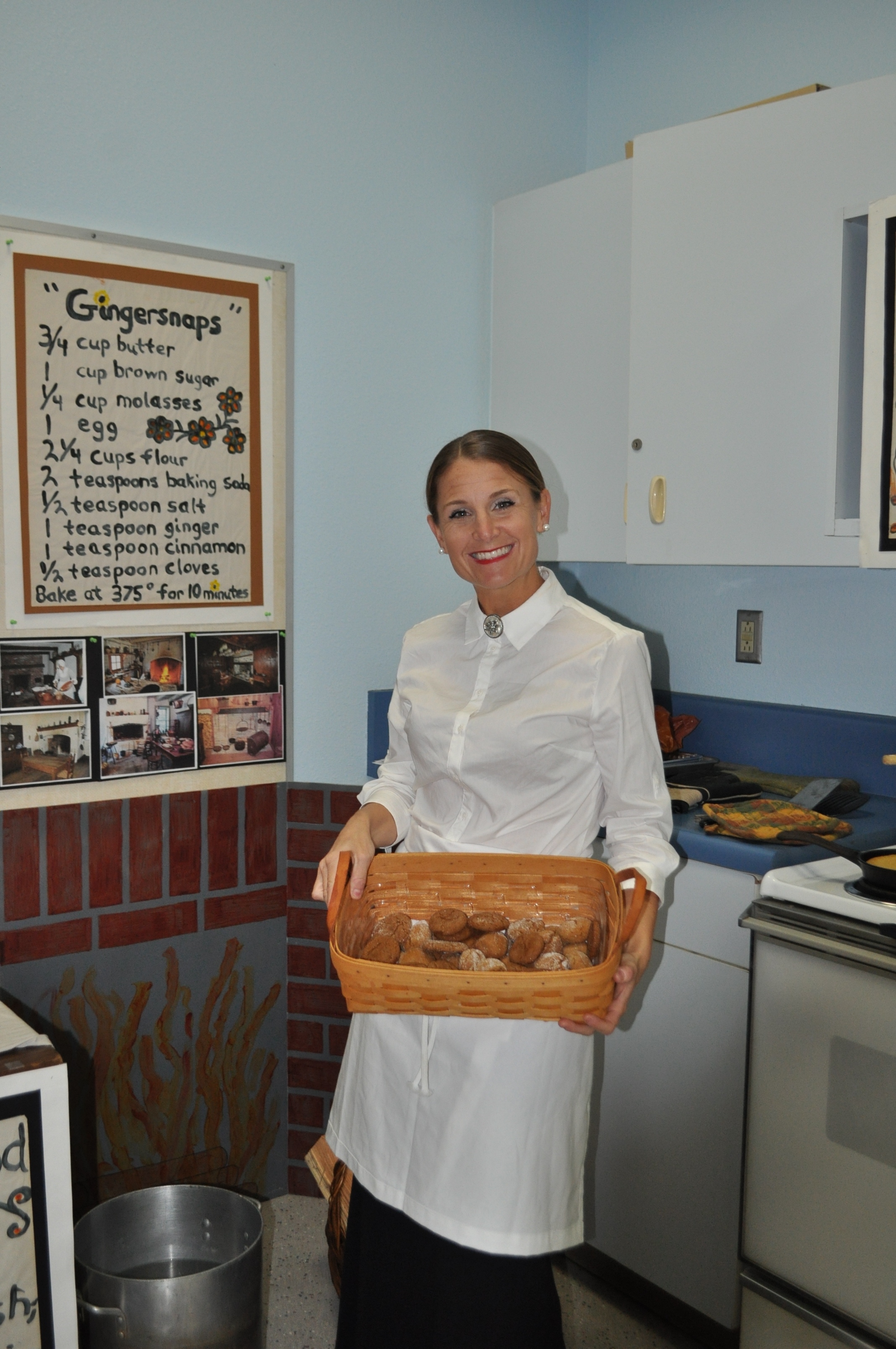
Parent volunteer Condra Mullins helped with the Gingersnap station.
The program is funded through parents (time and supplies) and funds provided by the Village Elementary Parent Teacher Organization (PTO). There is an elaborate schedule that keeps the groups moving smoothly through each station.
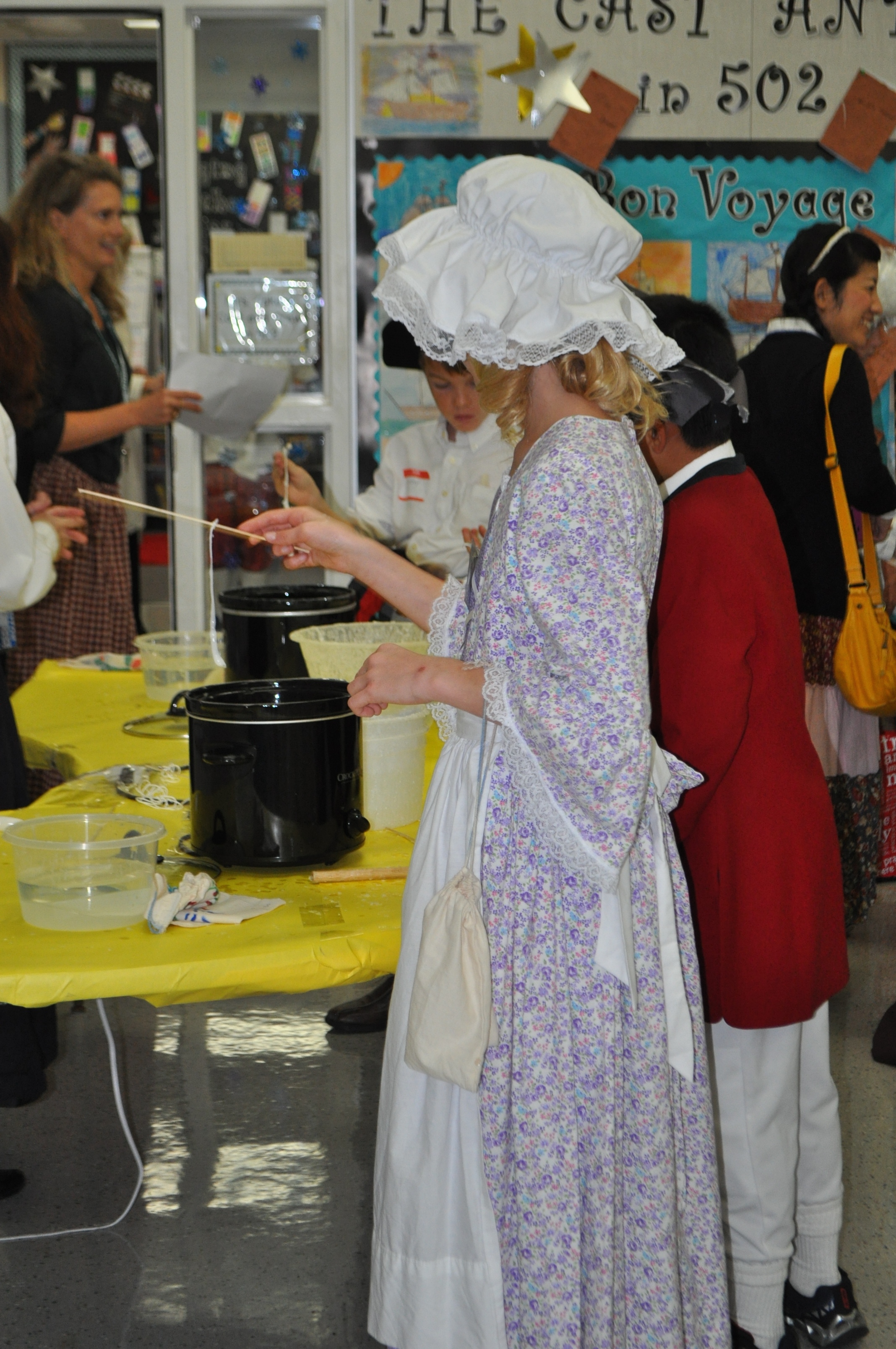
The nine stations include the following:
Candle making: Students get their very own wick and dip it in hot wax and then water, slowly watching a candle form. The hand dipped candles come in all shapes and sizes.
Tin Punch: Students use a hammer and nail to make a design on tin and learn about the various uses of this craft in the 18th century.
Gingersnaps: Participants learn about herbs and spices used during the 1700’s and how a kitchen worked. They roll out dough and get to sample the finished ginger snap cookies.
Cross Stitch: A lesson with needle and thread, and probably some serious patience, is completed at this station.
Parent volunteer Maria Oytas gives fifth grader Martin R. a hand at the cross stitch station.
Military Drills: With rifles in hand, students learn to march with military precision. “About, face!” They also discuss and learn about cannons and how they were used by the military.
The military drills station involved talk of cannons and learning how to march in formation.
Dancing: This is not the square dancing students will learn in middle school!
Colonial School: Participants use a real quill and ink well to practice making letters the way it was done over 200 years ago.
Apothecary: Suffering from a runny nose? Have frequent headaches? Students learn about common remedies used in the time of George Washington.
Toys, Ropes and Games: The sign outside this room said, “Village Tavern” and was filled with all types of games students could learn and practice with each other.
A sampling of the games students could play in the Toys, Ropes and Games station.
In addition to the nine stations, students, prior to the actual event, peel apples in class and make applesauce colonial style. Each student gets to sample the applesauce during the lunch break and is provided with lemonade. They are encouraged to bring items like beef jerky, bread, cheese and fruit that would have been readily available in colonial times. Lunches are transported in bandanas or other cloth.
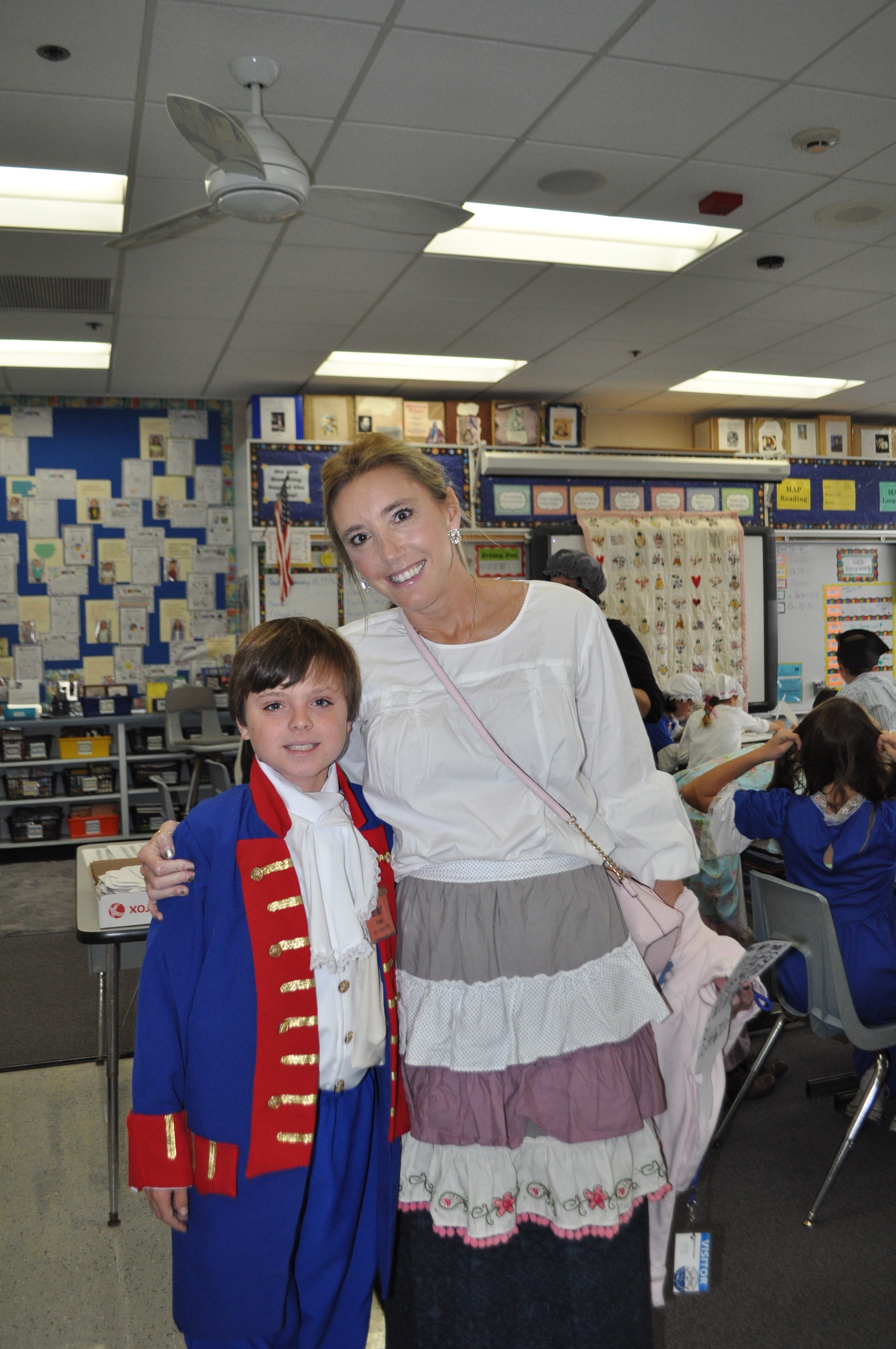
Village teacher Crystal Garner offered that this event is so important because “students experience U.S. history through hands-on, project-based learning. For one day, they go back in time to 1775 and live life as a child in colonial times. Students are engaged, eager, and the lessons learned will stick with them because they were “part of history” for a day. It brings history alive with real learning!”
Fifth graders Piper Shanks and Zoe Watwood agree, “tin punch was hard work.” Zoe talked about her arms being a tad sore after that station. Piper said, “I love colonial day. It’s a lot of fun. It was hard to do the military drills. It was a lot of work, too!”
One of the best things to come out of the colonial day event is “the realization by the students that learning history can be exciting and doesn’t have to take place sitting at a desk,” said Mrs. Garner. She also said that her favorite part of the day is “tasting ginger snaps!” Her class is in charge of that station though, so she also admits bias.
Parent volunteer and mother of a fifth grader, Seanan McGrath said, “It’s amazing! Bringing the kids back in time gives perspective into what life was like before electronics.” (Rachel and Grant Gorken pose for a picture, right, in the Colonial School.)
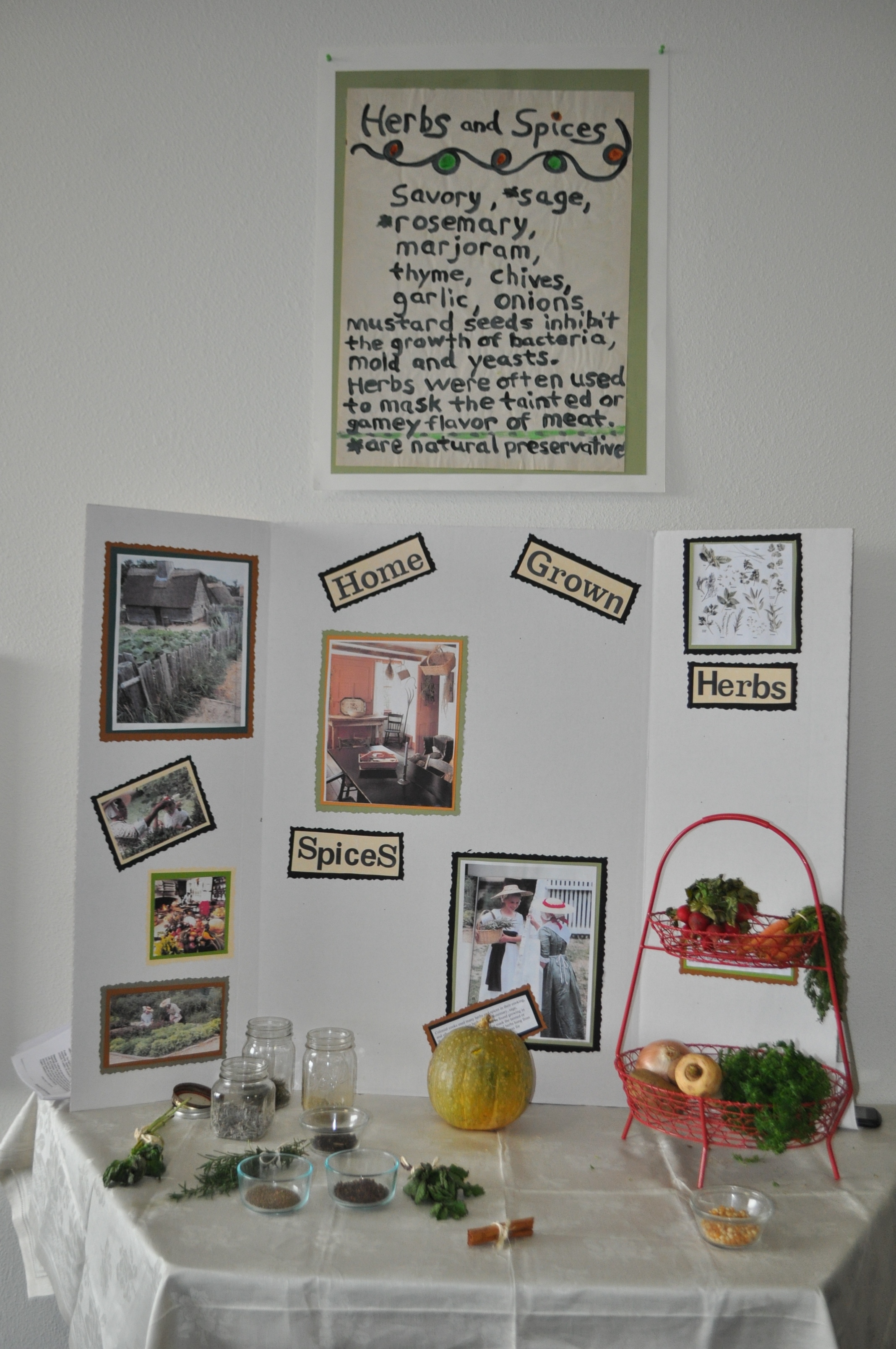
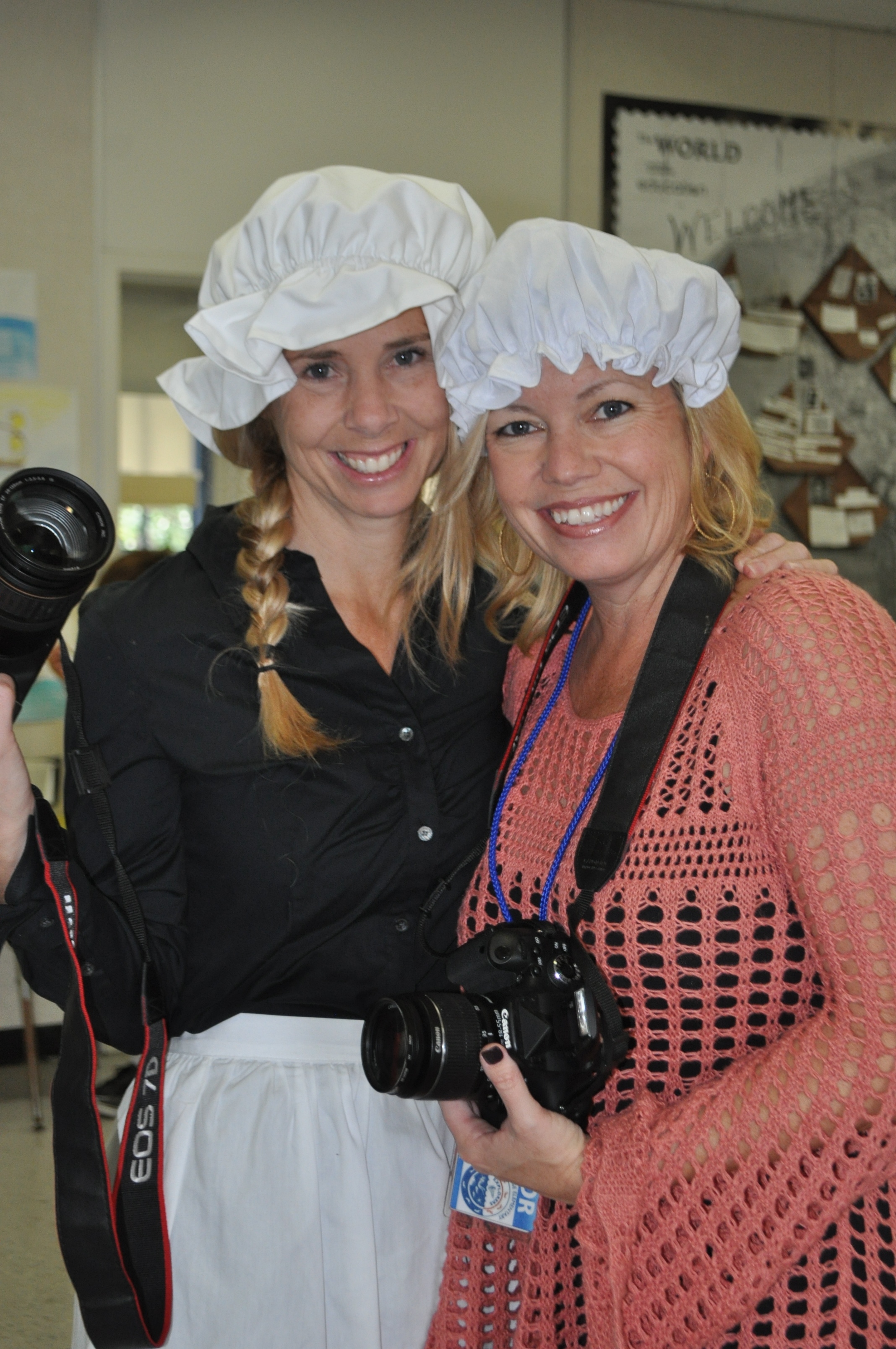
The colonial kitchen served up ginger snaps (left) and yearbook chairs Seanan McGrath and Bridget Shanks were ready with their cameras to document the day of activities (right).
It’s a long day of learning and activity that truly helps demonstrate many facets of 18th century living. Renee Cavanaugh, fifth grade teacher at Strand Elementary said that colonial day is so wonderful and important because “it’s hands on learning experiences the kids remember most.” She and Mrs. Garner both mentioned hearing about seniors at CHS who, when asked to share a favorite memory from elementary school, often choose colonial day as that treasured event that has stayed with them.
Kellee Hearther
Staff Writer
eCoronado.com
If you have something you’d love to read about, please contact us.




